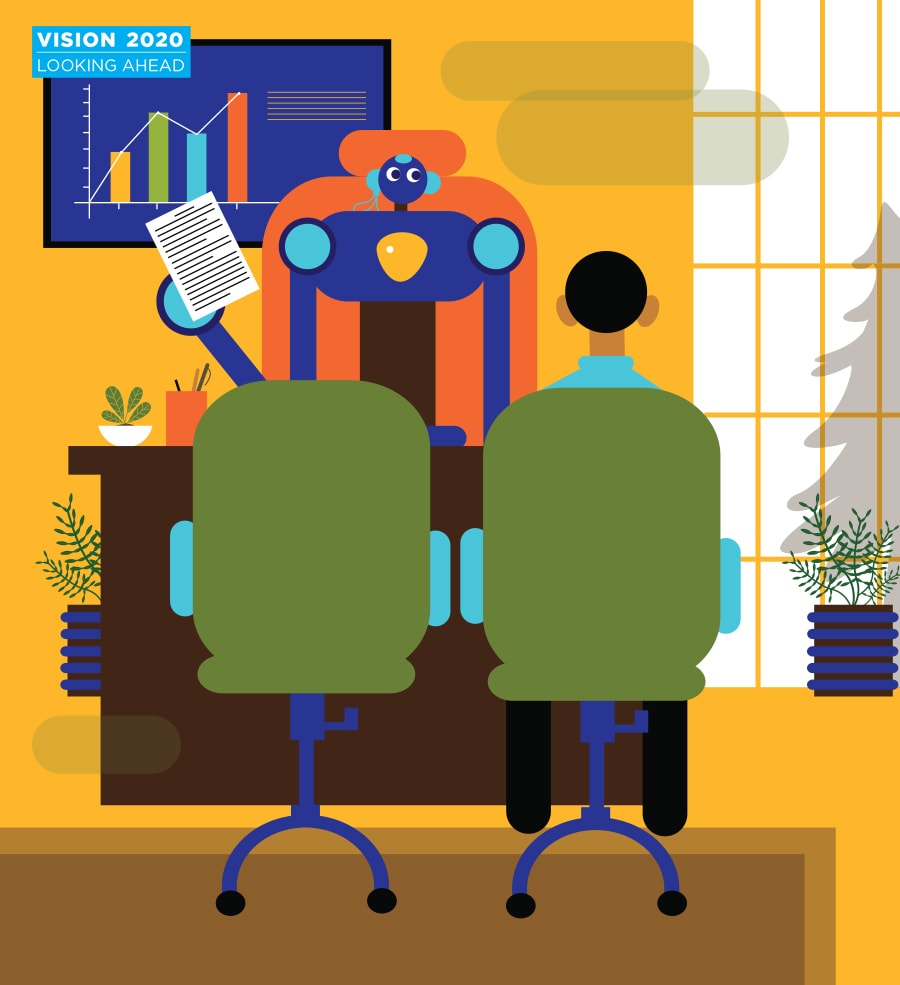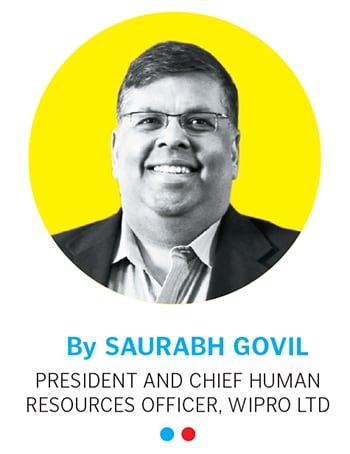
Why companies will have to fill digital skill gaps soon: Wipro's Saurabh Govil
As technology influences the way we work, companies will have to work to upskill employees to succeed in this decade
 Illustration: Chaitanya Dinesh Surpur
Illustration: Chaitanya Dinesh Surpur
Digital transformation is reinventing the way we work. From cloud computing to artificial intelligence (AI), new innovations are disrupting businesses in every sector and providing huge opportunities. AI and robotics will lead to a significant rise in automation, which will inevitably have an impact on jobs. In fact, some 30 percent of jobs are at potential risk of automation by the mid-2030s, according to research from PwC.

However, despite some losses, smart automation will also create new jobs and PwC predicts that it will result in a potential boost of $15 trillion to the global GDP by 2030. New technologies, including AI, will continue to create new jobs just as the Industrial Revolution, followed by the rise of mass production, and later, the birth of computing, changed the work landscape forever.
To unlock the potential of this new era of innovation, businesses must ensure that the workforce of the next decade has the required skills. It is crucial to identify, recruit and retain the right talent for the job. Recruiting a workforce with the necessary technical skills is vital for driving digital transformation. Currently, this is a major challenge as the demand for science, technology, engineering and mathematics (Stem) skills is significantly outpacing the supply of experienced and trained talent.
Devising a strategy to help close this digital skills gap should be a key focus for all businesses during the next decade and beyond. Without the right employees, organisations will find it hard to grow or innovate. There are several approaches that will enable the skilling and re-skilling required to thrive in the digital world.
The first is to focus on education reforms. Evolving the education experience to better reflect the constantly changing digital landscape is key. To ensure that students and graduates are given the necessary real-world skills, educational institutions must have a more practical approach. This involves a shift away from the traditional education model of lectures and textbooks to more hands-on experiences.
(This story appears in the 30 November, -0001 issue of Forbes India. To visit our Archives, click here.)




